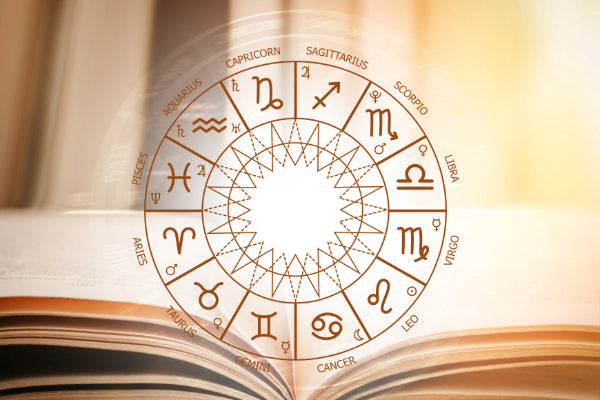Blog
-
Sometimes it’s good to be wrong. I used to get up on my high horse about the spiritual emptiness of Zoom events. My favorite line was that human relationships could not be reduced to an audio track and a video track – that if all we have are those two channels, something precious and intangible was missing. I still believe that there is truth in that attitude, but I’ll admit I’ve had to eat my words. Through my work with my online school, various podcasts, and some other collaborations, I now feel close in a genuinely soulful way with some people I have never actually met, at least not in the flesh.
The surprise for me is that despite my initial attitude, those sweet psychic tendrils of human connection seem capable of heart-to-heart piggybacking over computer screens. I was wrong and I admit it.
Still, there is much to be said for a hug. There’s much to be said for eye-contact. There’s much to be said for idle chit chat and just getting to know each other in a human way. Vibes come through with a lot more multidimensional punch when two people are in the same room. I do miss all of that primeval bonding.
My old apprenticeship groups were very tribal. Lasting friendships formed. There were affairs. A marriage or two happened. There were conflicts, along with some inappropriate behavior that had to be handled. There were tragedies and there were deaths – and even those kinds of sorrows bond people together. That’s all part of how we create community. I believe that every one of us learned a lot from those human experiences, especially when we all peered at them together through the lens of astrology – and maybe sat around later over a glass of wine yacking and gossiping about them.
-
The lunar nodes shifting into a new pair of signs is always a big deal. It happens every year and a half or so, and it impacts everybody, both personally and in the world’s headlines. A few weeks back, on January 28, the Moon’s (Mean) north node crossed the line and entered Pisces, where it will remain until it transitions into Aquarius on August 18, 2026. (The south node entered the opposite sign, Virgo, at the same time.)
In this short essay, my intention is to put the personal meaning of the nodes shifting signs in the spotlight. Since we’ll all be experiencing some of this energy collectively, it will impact the positives and negatives of the wider world too.
As always, we start by underscoring a point that is really the bedrock of evolutionary astrological theory: the south node of the Moon represents the gravity of old habits which are holding us back, while the north node symbolizes the remedy that can liberate us. In my own work, I view the soul cages represented by the south node as problems and challenges that originated in prior lifetimes, although other philosophies can be made to fit too. In any case, as the late, lamented astrologer and my dear friend, Michael Lutin, once put it, “the north node is the meeting and the south node is the bottle.” If you know anything about Alcoholics Anonymous, Michael really covered the essence of the point in those thirteen words.
-
Pluto, the “Lord of the Underworld,” was discovered on February 18, 1930 and announced publicly on March 13 of that year. While the exact dates are of limited importance in our work, Pluto’s discovery itself was momentous. From the astrological perspective, it marks nothing less than the collective human discovery of the unconscious mind. In essence, with the discovery of Pluto, we are talking about the birth of psychology as part of the human conversation.
As ever, with massive astrological changes such as this one, it’s helpful to take a long-term perspective. Uranus was discovered in 1789 – and marked the (very Uranian) overthrow of the rule of kings along with the birth of scientific inquiry, even when it violated religious dogma. That didn’t happen on a single day! Similarly, Neptune was discovered in 1848 and it marked a massive change in the scope of human imagination and human spirituality – again, that’s something we can see clearly in retrospect, but not something that happened the very minute Neptune was found.
In exactly the same fashion, the human discovery of the true extent of our inner world – our Plutonian unconscious mind – unfolded over a generation or two. Still, the astrological signature of the event itself dates to the physical discovery of Pluto back almost a hundred years ago.
-
I cringe whenever I hear an astrologer call Mars a “malefic” planet. Mars can bring us so many gifts, starting with the courage to stand up for ourselves. It's got a dark side though – so do all the planets. Where Mars lies in your chart, you’ll definitely need some of that courage. That’s because Mars usually marks a place in your life where you’ll face some serious stress. Nobody enjoys that, even though we might learn some useful lessons in facing it down. I suppose that astrologers who miss the evolutionary point of that extra dose of tension are the real reason poor Mars got saddled with the “malefic” label.
In my own chart, Mars is in the spotlight in many ways, starting with the fact that I’ve got Scorpio rising which makes Mars the traditional ruler of my chart. It’s also sextile to my Mars-ruled Aries Moon, which deepens my reactivity to it. Mars itself lies in Aquarius, in my 3rd house (Placidus) and in a conjunction with my late-Capricorn Mercury. Mercury and the 3rd house are both about communication, so those two features reinforce each other, and that’s the dimension of Mars that I want to explore in this newsletter.
-
How many books on your astrology shelf contain a phrase like this one: If your Mercury is in Gemini or the 3rd House . . .? With two cents’ worth of logic, the conclusion is inescapable: the author is telling you that the two configurations mean the same thing. If A equals both B and C, then B equals C and there’s not a single scrap of wiggle room about that anywhere.
The trouble is that in this case, B does not equal C. Houses and signs are not the same. They do overlap in meaning, as we will see. They are far from unrelated. But if you treat them as if they were interchangeable, your astrological work loses focus. Still, this is a painfully common error among astrologers. Even though many of those books I mention contain useful perspectives in other areas, when it comes to this issue they are the culprit.
Learning to avoid this pitfall is not hard and it will take your work to the next level.





